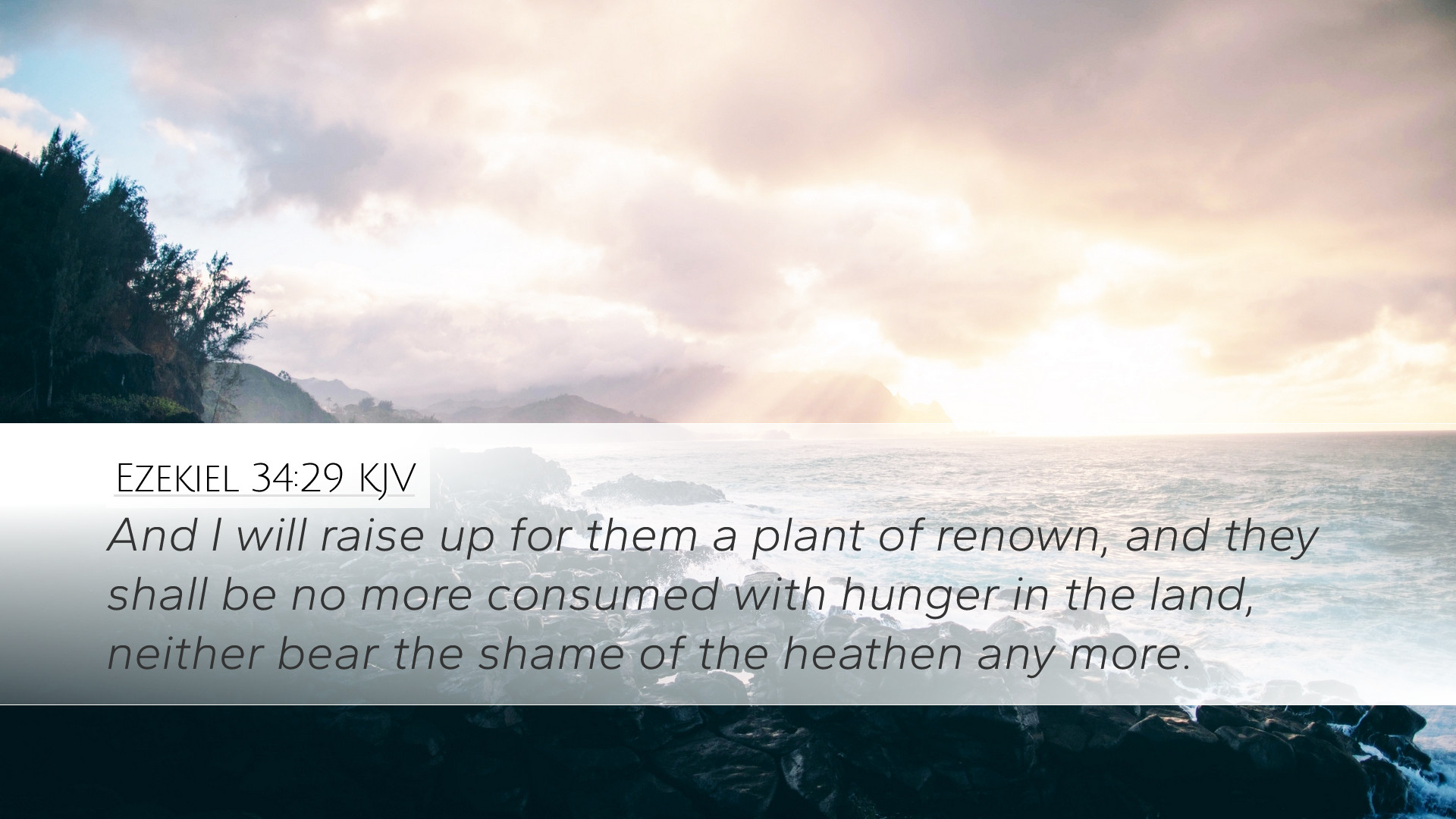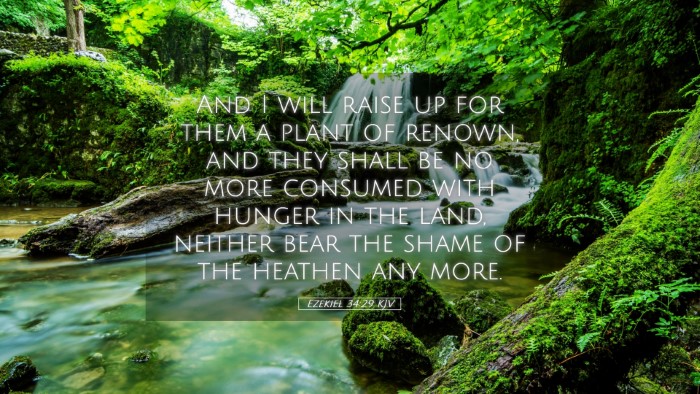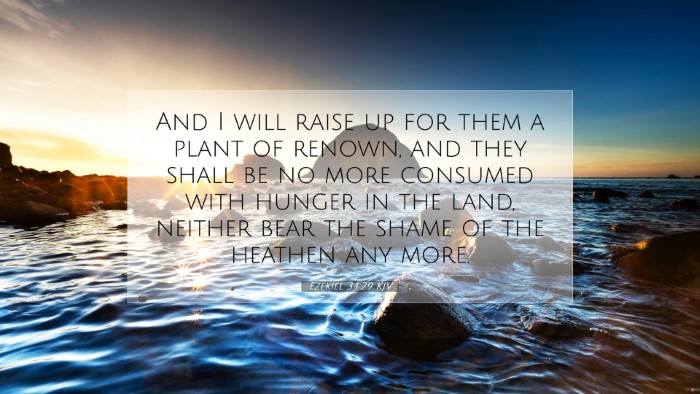Ezekiel 34:29 - A Commentary
"And I will raise up for them a plant of renown, and they shall be no more consumed with hunger in the land, neither bear the shame of the heathen any more."
Introduction
Ezekiel 34:29 marks a turning point in the prophetic message delivered by the prophet Ezekiel. Emphasizing God's promise of restoration, this verse encapsulates His commitment to provide for His people. By combining insights from historical and theological perspectives, we can gain a richer understanding of the implications and meanings embedded within this scripture.
Contextual Analysis
The chapter as a whole addresses the failure of Israel’s leaders, portraying them as shepherds who have neglected their flock. God's severe indictment against the shepherds sets the stage for His messianic promise. Taking into account the historical context of the Israelite exiles, Ezekiel's message serves as both a condemnation and a promise of hope.
1. God's Sovereign Provision
Matthew Henry emphasizes the significance of the term "plant of renown," suggesting it refers to a glorious deliverer who will arise for the people. This 'plant' symbolizes hope and revival, implying that God will not leave His people in despair but will provide them with a leader who embodies strength, guidance, and sustenance.
2. The Fulfillment of Prophecy
According to Albert Barnes, the phrase “a plant of renown” indicates the coming of a Messiah, particularly Jesus Christ, who fulfills the promise of leadership and care. In acknowledging Jesus as this plant, believers see the ultimate consummation of God’s promises to Israel and the broader implications for all nations.
3. The End of Suffering
The promise that "they shall be no more consumed with hunger" speaks to the deep communal and physical needs of the Israelites. Adam Clarke posits that the hunger mentioned here is not solely physical, but also spiritual. This reflects God's desire to meet the holistic needs of His people, ensuring that they thrive both in body and soul.
4. Cultural Implications
This promise also serves to liberate God’s people from the shame brought about by their enemies. Matthew Henry points out that the Hebrew people were deeply affected by their national defeat and captivity; the promise of restoration assures them that their identity and dignity will be restored within the covenant community.
5. Theological Reflections
Theologically, this verse invites reflection on God’s nature as the Good Shepherd. He seeks the lost and restores the broken. This image of divine shepherding resonates with both the Old Testament and New Testament narratives, urging pastors and theologians to draw parallels between God’s covenant with Israel and His compassion for the Church.
Application for Today
For contemporary believers, Ezekiel 34:29 serves as a profound reminder of God’s unyielding faithfulness. It challenges pastors and theologians alike to embrace their roles as shepherds of God’s flock, ensuring that they too are conduits of His grace and provision.
- Pastoral Care: Encouraging leaders to actively seek the lost and nurture the despairing reflects the heart of this verse.
- Community Engagement: Addressing physical and spiritual needs within the congregation mirrors God's call for holistic ministry.
- Covenant Identity: Reminding believers of their identity in Christ, who fulfills the promises made to His people.
Conclusion
Ezekiel 34:29 encapsulates the essence of God’s redemptive plan for His people. Understanding the depth of this verse invites further reflection on God’s intervention in our lives, His provision, and the dignity He accords us. As we explore the implications of being a 'plant of renown,' let us, like Ezekiel, share the promise of restoration and hope with a world deeply in need.


